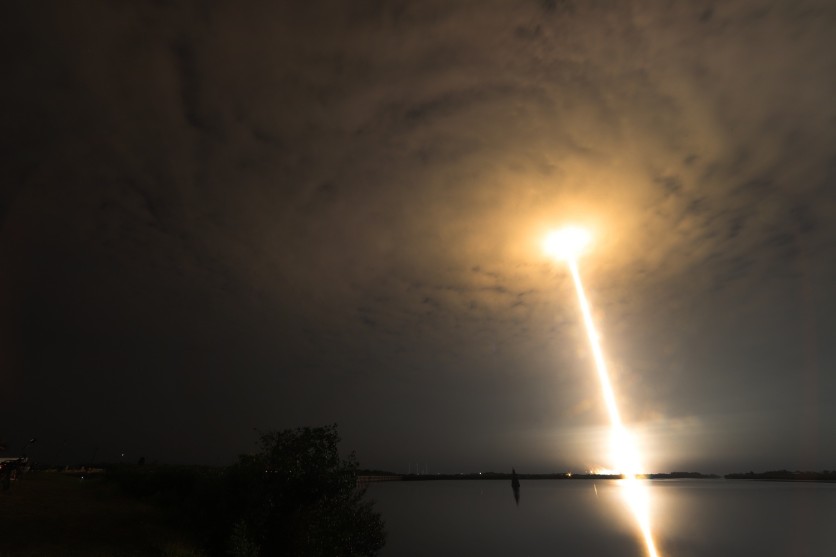Military researchers in China are concerned with the possible threats of SpaceX's Starlink satellites, and as such, they want to be prepared to disable or possibly destroy the huge internet constellation.

War in Space?
As reported first by the state-backed South China Morning Post, a research paper was published in China's peer-reviewed journal Modern Defence Technology detailing a strategy to counteract possible threats posed by Starlink.
Lead author Ren Yuanzhen, a researcher with the Beijing Institute of Tracking and Telecommunications, said that the Chinese military must be ready to respond to Starlink's expansion.
According to Gizmodo, the research paper was accessible yesterday, but it appeared to be taken down as of today. But the translated version of the paper is available here.
The paper noted that a combination of both soft and hard kill methods must be utilized so that Starlink satellites "lose their functions and destroy the constellation's operating system," citing reasons that it has "hidden dangers and challenges" to China.
Researchers of the paper also said that Starlink could go on the "offensive" and employ the satellites' ion thrusters to take down Chinese spacecraft or satellites off of their orbits.
It is worth noting that Elon Musk's SpaceX is carrying out the Starlink satellite constellation in low Earth orbit, aiming to provide high-speed internet to any area of the world. Specifically, the plan looks forward to launching 42,000 satellites to orbit using its Falcon 9 rockets.
However, only 2,300 Starlink satellites placed in orbit are reported to be functioning.
The main problem with the satellites, as noted by Gizmodo, is that there are too many of them, and taking them down would entail a huge amount of anti-satellite missiles to destroy Starlink's constellation. But taking down one or two satellites will not lead to the collapse of the entire system.
Astrophysicist Jonathan Mcdowell from the Harvard-Smithsonian Center for Astrophysics said in a statement with Gizmodo that Starlink is a "different problem" in terms of looking at it from the perspective of a country's military thinking about "war in space.
Read Also : SpaceX Starlink Internet Service Expands in Southeast Asia, Starting in the Philippines! NTC Gives Go Signal
Why is China Concerned?
China is concerned about the constellation primarily after two Starlink satellites almost crashed into the country's Tianhe space station on two separate occasions last year. In both incidents, the space station had to move away while Chinese astronauts were on board.
The Chinese researchers are worried that SpaceX might soon overwhelm low Earth orbit and might help the U.S. military in overtaking a valuable swath of space.
Back in March, China also raised concerns about Musk using Starlink to provide internet for Ukraine amidst the ongoing Russian invasion.
Meanwhile, an opinion piece warning about Starlink's expansion was published on a website with links to China's Central Military Commission. The article claimed that Starlink could have interacted with UAVs (Unmanned Aerial Vehicles) and used "big data and facial technology" for Ukraine's military operations against Russia.
After throwing support for Ukraine, Musk warned in an interview with Business Insider that it would not be easy to take down Starlink because it holds 2,000 satellites, which he claimed to have "a lot of anti-satellite missiles" as well.
"I hope we do not have to put this to a test, but I think we can launch satellites faster than they can launch anti-satellites missiles," the billionaire added.
This article is owned by Tech Times
Written by Joaquin Victor Tacla
![Apple Watch Series 10 [GPS 42mm]](https://d.techtimes.com/en/full/453899/apple-watch-series-10-gps-42mm.jpg?w=184&h=103&f=9fb3c2ea2db928c663d1d2eadbcb3e52)



